Economic Technological

What are the main challenges in achieving a successful energy transition ?
The energy transition to renewable sources faces numerous challenges that encompass technological, economic, policy, social, infrastructure, environmental, geopolitical, and natural limitations. Addressing these obstacles requires a comprehensive approach involving technological innovation, economic incentives, policy support, cultural shifts, international cooperation, and consideration of environmental impacts and resource availability.

How effective are international climate commitments in reducing carbon emissions ?
International climate commitments, such as those made under the Paris Agreement, aim to reduce carbon emissions and limit global temperature rise. These commitments vary in ambition and implementation can be challenging due to political, economic, and technological factors. Monitoring and verification mechanisms exist but have flaws. Many commitments focus on long-term goals, making immediate impact assessment difficult. However, they can inspire policy changes, technological innovation, and raise public awareness, leading to indirect emissions reductions. The effectiveness of these commitments depends on a range of factors including political will, economic conditions, technological advancement, and societal engagement.

What are the challenges in enforcing international environmental laws related to climate change ?
Enforcing international environmental laws related to climate change faces challenges such as a lack of global leadership and coordination, inadequate legal frameworks, economic and developmental imbalances, scientific uncertainty and information gaps, socio-cultural factors, and technological and infrastructure limitations. These issues require cooperation among nations, stronger legal frameworks, balanced economic development, improved scientific understanding, cultural sensitivity, and technological advancement to overcome.

What is the relationship between energy prices and economic growth ?
The interplay between energy prices and economic growth is multifaceted, with each influencing the other in various ways. High energy prices can impede economic expansion by escalating production costs, diminishing consumer purchasing power, and fostering inflation. They might also spur investment in alternative energies and drive resource reallocation towards efficiency, counterbalancing some of their immediate negative impacts. Conversely, robust economic growth often amplifies energy demand, propelling prices upwards unless compensated by enhanced supply or technological advancements that boost efficiency. This intricate relationship underscores the importance of strategic policy interventions to manage energy pricing dynamics for sustainable economic development.
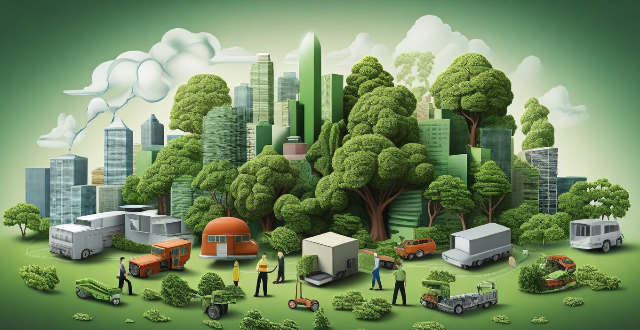
How do climate commitments impact economic growth and development ?
The impact of climate commitments on economic growth and development is multifaceted, with both positive and negative aspects. On the positive side, these commitments stimulate innovation in renewable energy sources and energy efficiency, create new markets for green products and services, improve public health by reducing air pollution, and enhance international cooperation. On the negative side, there are transition costs associated with shifting from fossil fuels to renewable energy sources, potential job displacement in traditional industries, trade-offs between environmental protection and economic growth, and unequal distribution of benefits and costs. Despite these challenges, prioritizing sustainability can lead to long-term economic growth while protecting the environment for future generations.

What are the benefits of the Clean Energy Revolution ?
The Clean Energy Revolution is a significant transformation that brings numerous benefits, including a healthier environment and population, economic growth and sustainability, enhanced energy security and efficiency, and innovation and technological progress. It reduces pollution and improves public health, creates jobs and opportunities, makes energy more secure and efficient, and fosters international cooperation and technological advancements. The revolution promises a more sustainable and equitable world for humanity to thrive in without compromising the planet's health.
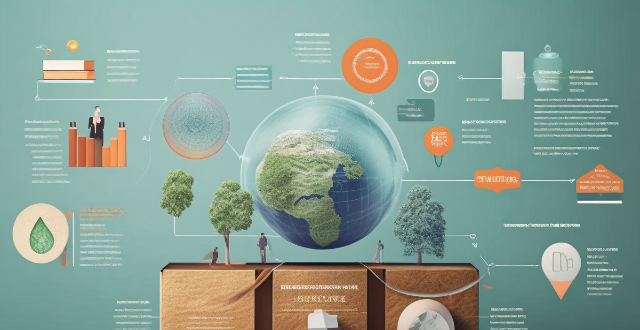
How can governments stimulate economic recovery without increasing inflation ?
Governments can stimulate economic recovery without increasing inflation by implementing a combination of fiscal policy measures, monetary policy tools, supply-side policies, and structural reforms. Fiscal policy measures include tax incentives for businesses and consumers, as well as targeted spending on infrastructure and education. Monetary policy tools involve adjusting interest rates and reducing reserve requirements to encourage borrowing and lending. Supply-side policies focus on deregulation and labor market flexibility to reduce costs and promote competition. Structural reforms aim to support education, innovation, and environmental sustainability. It is important for governments to monitor the effects of these policies and adjust them as needed to maintain price stability and economic health.
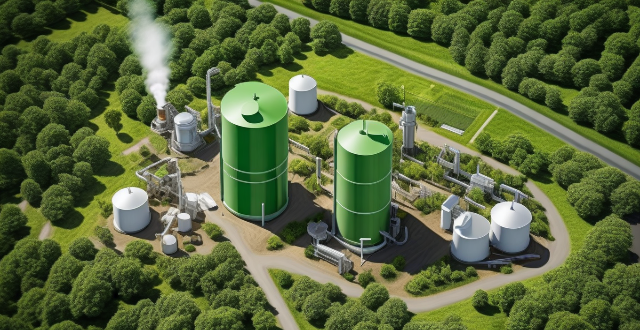
What are the economic implications of reducing greenhouse gas emissions ?
Reducing greenhouse gas emissions is essential for mitigating climate change but has economic implications. The shift to renewable energy requires initial investments but can create jobs and reduce reliance on fossil fuels. It fosters innovation and green jobs but may impact fossil fuel industries negatively. Regulatory changes like carbon pricing and compliance standards can increase operational costs for businesses. Globally, it affects market dynamics and trade, with potential for carbon leakage and competitive advantages in green technology markets. Consumer behavior might shift towards sustainable consumption and energy efficiency. Social welfare considerations include equity concerns and potential health benefits from reduced air pollution. Balancing environmental goals with economic factors is key to a successful transition to a low-carbon economy.

How do climate change negotiations affect global trade and economic systems ?
Climate change negotiations play a crucial role in shaping global trade and economic systems. These negotiations aim to find solutions to the challenges posed by climate change, such as reducing greenhouse gas emissions, promoting renewable energy sources, and protecting biodiversity. The outcomes of these negotiations have far-reaching implications for international trade, investment, and economic development. In this article, we will explore how climate change negotiations affect global trade and economic systems. One of the key impacts of climate change negotiations on international trade is the imposition of tariffs and subsidies on goods and services that contribute to climate change. For example, countries may impose higher tariffs on imported goods that are produced using high levels of carbon emissions or other environmentally harmful practices. Similarly, governments may provide subsidies to domestic industries that adopt sustainable practices or invest in renewable energy technologies. These measures can create trade barriers and distort market competition, affecting global trade patterns. Another way in which climate change negotiations can influence international trade is through the implementation of carbon pricing mechanisms, such as carbon taxes or cap-and-trade systems. These mechanisms aim to internalize the external costs of carbon emissions by making polluters pay for their emissions. As a result, companies that rely heavily on fossil fuels or produce high levels of emissions may face increased costs, making their products less competitive in global markets. On the other hand, companies that invest in low-carbon technologies or adopt sustainable practices may gain a competitive advantage. Climate change negotiations often lead to the adoption of stricter environmental standards and regulations at both national and international levels. These standards can affect international trade by creating compliance costs for exporters and importers. For instance, companies that export goods to countries with stringent environmental regulations may need to invest in cleaner production processes or face penalties for non-compliance. Similarly, importers may prefer to source goods from suppliers that meet certain environmental standards, affecting trade flows and market access. Climate change negotiations also have significant implications for investment and economic development. As countries commit to achieving ambitious climate targets, there is an increasing demand for green finance and investment in sustainable projects. This can create new opportunities for investors and businesses that focus on renewable energy, energy efficiency, and other low-carbon sectors. However, it can also lead to capital flight from traditional fossil fuel industries, affecting economies that rely heavily on these sectors. Climate change negotiations often include provisions for technology transfer and innovation cooperation between developed and developing countries. This can help bridge the gap between countries with different levels of technological capabilities and promote sustainable development worldwide. By facilitating the transfer of clean energy technologies and supporting research and development efforts, climate change negotiations can foster economic growth and job creation in emerging markets. Finally, climate change negotiations address the urgent need for adaptation financing and support for vulnerable communities affected by climate change. This includes funding for infrastructure improvements, disaster risk reduction, and other measures that help countries adapt to changing climate conditions. While these efforts are essential for protecting human lives and livelihoods, they also represent significant economic opportunities for businesses involved in climate resilience and adaptation services. In conclusion, climate change negotiations have far-reaching implications for global trade and economic systems. By imposing tariffs and subsidies, implementing carbon pricing mechanisms, setting environmental standards, promoting green finance and investment, facilitating technology transfer and innovation, and providing adaptation financing and support, these negotiations shape the future direction of international trade and economic development. As we continue to grapple with the challenges posed by climate change, it is crucial for policymakers, businesses, and civil society to work together to ensure that our responses to this global challenge are aligned with our collective goals for sustainable prosperity.

How has financial regulation evolved over time ?
The evolution of financial regulation has been marked by significant changes in response to economic crises, technological advancements, and shifts in political ideologies. From the laissez-faire approach of early days to the rise of regulatory frameworks during the Great Depression, through the deregulation era of the late 20th century, and the renewed emphasis on regulation following the Global Financial Crisis, financial regulation has adapted to maintain stability and promote growth within the financial sector. The digital age presents new challenges, requiring regulators to adapt existing frameworks to accommodate technological innovations while ensuring consumer protection and systemic stability.
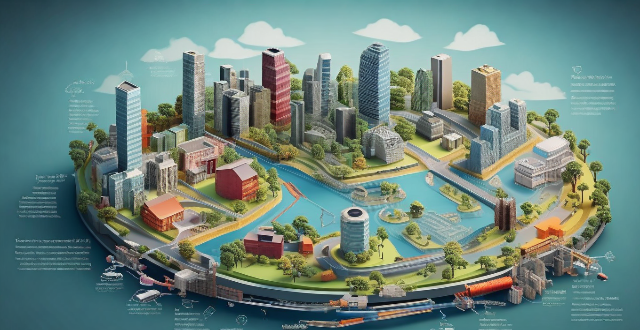
How can carbon capture technology be scaled up to address global climate change ?
The article discusses the challenges and strategies associated with scaling up carbon capture technology (CCT) to mitigate global climate change. The challenges include high costs, technological limitations, infrastructure and logistics issues, and regulatory and legal frameworks. To overcome these challenges, strategies such as policy and economic incentives, technological innovation, infrastructure development, public-private partnerships, and international cooperation are proposed. Scaling up CCT is crucial in reducing atmospheric CO2 levels and combating global climate change.
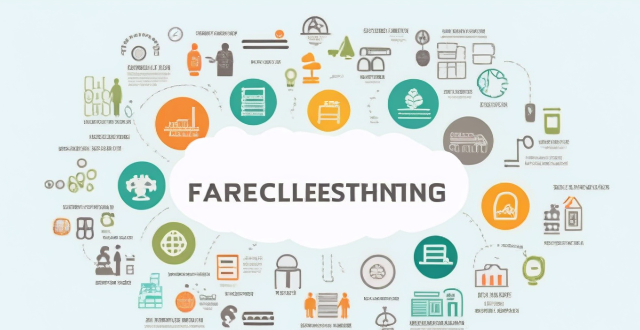
What are the challenges to achieving sustainable consumption ?
The text discusses the various challenges to achieving sustainable consumption, including lack of awareness and education, economic barriers, cultural and social norms, infrastructure and accessibility issues, technological limitations, policy and regulatory challenges, business practices, and consumer behavior. It emphasizes the need for a multifaceted approach involving education, policy changes, technological advancements, and cultural shifts towards more sustainable consumption patterns to overcome these challenges and move towards a more sustainable future for all generations.

Can economic indicators accurately predict a recession ?
Economic indicators, such as GDP growth rate, employment rate, inflation rate, interest rates, consumer sentiment, and manufacturing/service sector activity, are used to gauge the health of an economy. While these indicators provide valuable insights, their ability to predict a recession is not absolute due to limitations like lagging indicators, false signals, external factors, and policy responses. A combination of indicators and a probabilistic approach can improve accuracy in predicting economic downturns.
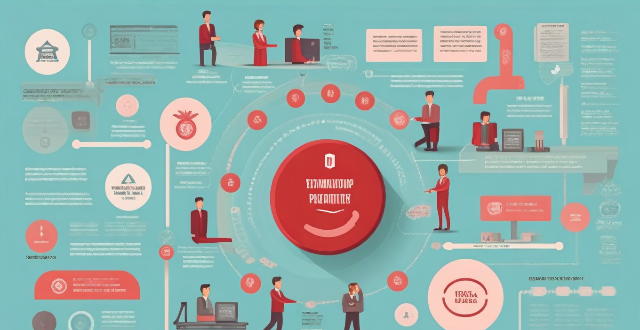
How do green jobs impact economic growth ?
Green jobs can stimulate economic growth by creating new employment opportunities, driving innovation and technological advancements, reducing costs and improving efficiency, enhancing environmental quality and public health, and attracting investment and tourism dollars.

Can environmental legislation effectively reduce pollution ?
Environmental legislation has the potential to effectively reduce pollution, but its success depends on various factors such as enforcement and compliance, public awareness and participation, technological innovation, political will, international cooperation, and economic considerations. Strong regulatory bodies, education campaigns, investment in clean technology, government prioritization of environmental protection, global collaboration, and balancing environmental goals with economic development are all crucial for the effectiveness of environmental legislation. Achieving lasting improvements in environmental quality requires ongoing effort from all sectors of society.
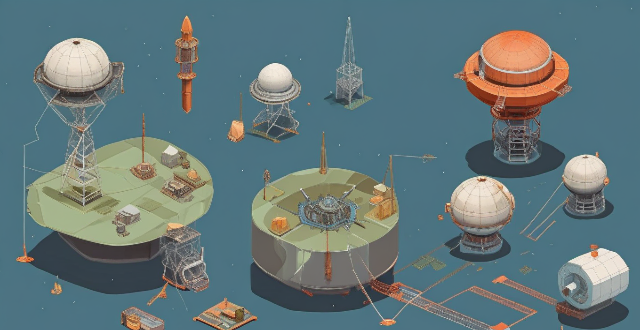
How do communication satellites impact the field of telecommunications ?
Communication satellites have revolutionized telecommunications by providing global connectivity, increasing bandwidth, and improving reliability. They allow for communication across vast distances, connecting remote areas with the rest of the world and providing access to telecom services in regions lacking terrestrial infrastructure. Modern satellite systems offer high data rates for faster internet speeds and better voice/video transmissions, supporting multiple services like voice, data, and video conferencing. Satellites also enhance reliability and redundancy as critical backups during disasters and emergencies, creating diverse communication pathways. With rapid deployment capabilities, satellites are ideal for temporary situations like military operations or emergency responses and enable mobile applications. Economically, advancing technology reduces costs, opens new markets, and fosters job creation. Technological advancements include improved modulation techniques and antenna designs for better performance. Environmental considerations involve space debris mitigation and energy efficiency. Overall, satellites significantly impact telecommunications by extending reach, increasing capacity, ensuring reliability, offering flexibility, driving economic growth, and fostering technological advancements while considering environmental implications.

Can economic growth be compatible with sustainable development ?
Economic growth and sustainable development can coexist through strategies such as promoting green economies, inclusive growth, regulation and policy, technological innovation, and international collaboration.

How can we balance economic development and water resource protection ?
Water resources are crucial for economic development but must be protected to ensure sustainability. Strategies for balancing these goals include prioritizing sustainable practices, implementing regulatory measures, fostering collaboration and partnerships, investing in infrastructure and technology, and educating and creating awareness. By adopting these approaches, we can achieve a balance between economic growth and water conservation, ensuring long-term sustainability for all.

What are the key challenges in managing water resources sustainably ?
Managing water resources sustainably is a complex task that involves various challenges, including climate change, population growth and urbanization, pollution and degradation of water bodies, overexploitation and unsustainable use, inadequate governance and policy frameworks, economic and financial constraints, social and cultural factors, technological limitations, ecological considerations, and international water sharing. Addressing these challenges requires a combination of technological innovation, policy reform, public education, and international cooperation. Sustainable water management is not only about ensuring enough water for current needs but also about preserving this vital resource for future generations.

What impact does consumer confidence have on economic recovery ?
Consumer confidence is a key driver of economic recovery. It stimulates growth, boosts employment rates, reduces unemployment, and increases government revenue. To improve consumer confidence, governments should encourage stable economic policies, provide financial education, promote transparency, and invest in infrastructure.
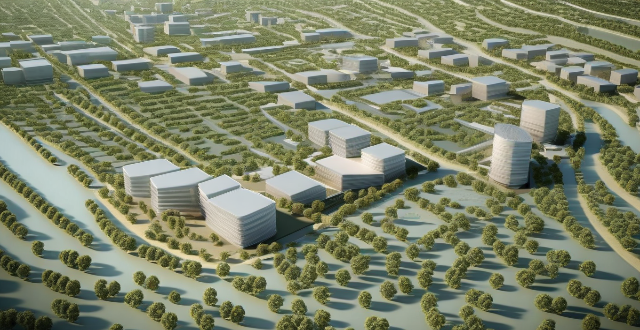
How do economic systems contribute to environmental problems and climate change ?
Economic systems, especially capitalism and industrialization, significantly impact the environment by promoting overproduction, waste, and reliance on fossil fuels. Issues such as built-in obsolescence, global trade emissions, and exploitation of natural resources exacerbate environmental problems. Additionally, population growth and urbanization increase consumption, while market failures and regulatory gaps often overlook environmental costs. Addressing these challenges requires a shift in economic priorities towards sustainability.

What challenges do we face in implementing resource-efficient utilization globally ?
Implementing resource-efficient utilization globally presents several challenges, including lack of awareness and education, economic barriers, technological limitations, legal and policy constraints, and cultural differences. Addressing these challenges will require a multifaceted approach that involves raising awareness, providing economic incentives, investing in research and development, creating supportive policies and regulations, and fostering cross-cultural understanding and collaboration.
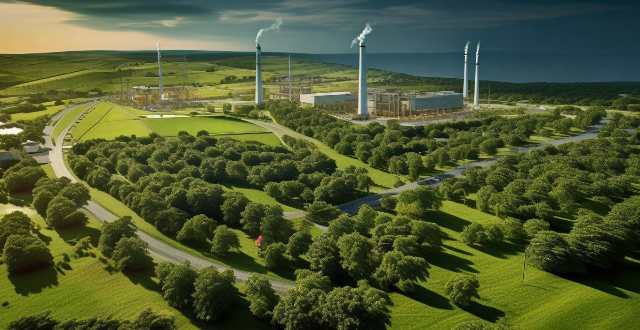
How can we balance economic growth with environmental sustainability ?
Balancing economic growth with environmental sustainability requires a multifaceted approach that includes promoting green infrastructure and renewable energy, encouraging sustainable business practices, fostering innovation and technology development, educating and engaging stakeholders, and implementing policies and regulations. By taking these steps, we can create a more sustainable future where economic prosperity coexists with environmental well-being. Achieving this balance will require ongoing effort from all sectors of society, including governments, businesses, communities, and individuals alike.
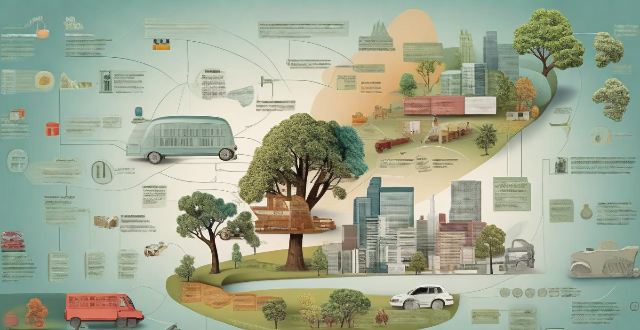
What is an economic stimulus plan ?
An economic stimulus plan is a government policy aimed at boosting a country's economy during times of slow growth or recession. The primary goal of such plans is to increase consumer spending, encourage business investments, and create jobs, thereby stimulating economic activity and promoting overall growth. Key features of an economic stimulus plan include tax cuts and rebates, government spending on infrastructure projects, monetary policy adjustments, direct assistance to businesses and individuals, and incentives for investment. Benefits of an economic stimulus plan include increased economic growth, job creation, long-term gains, and reduced poverty rates. However, potential downsides of an economic stimulus plan include national debt, inflation risks, crowding out effect, and short-term vs long-term effects. In conclusion, an economic stimulus plan is a multifaceted approach employed by governments to revive flagging economies. While these plans can have significant positive impacts on growth, employment, and overall well-being, they must be carefully designed and implemented to minimize potential drawbacks such as increased national debt and inflation risks.

How do changes in immigration policy influence economic growth ?
Changes in immigration policy can have a significant impact on economic growth by increasing the labor force, promoting diversity, increasing consumer spending, reducing wage inflation, and increasing tax revenue.

What is the outlook for the European Union's economic recovery ?
The economic recovery of the European Union (EU) depends on political stability, global economic conditions, and domestic policies. Unity among member states and effective governance are crucial for managing crises and implementing growth-promoting policies. Global trade dynamics and supply chain disruptions also play a significant role. Domestically, fiscal stimulus, structural reforms, and a balanced green transition are key. The outlook is optimistic but uncertain, with many influencing factors.

What are the economic benefits of biodiversity ?
Biodiversity plays a significant role in the global economy by providing various economic benefits. These include increased resilience to climate change, support for sustainable agriculture, tourism revenue, pharmaceutical and medical research opportunities, ecosystem services, fisheries and food security, cultural and aesthetic value, innovation and education, risk management and insurance, and trade and livelihoods. Preserving biodiversity is crucial for maintaining these economic benefits across different sectors.

What are the potential economic benefits of sharing climate information ?
The potential economic benefits of sharing climate information include improved decision making through better planning and management, risk assessment and mitigation, increased efficiency and productivity, innovation and new business opportunities, and growth of the green economy. By leveraging this information effectively, businesses, governments, and individuals can adapt to changing climatic conditions while minimizing risks and maximizing economic gains.

What are the potential economic benefits of mining resources on other planets ?
The article discusses the potential economic benefits of mining resources on other planets, including increased availability of resources, creation of new jobs, advancements in technology, stimulation of economic growth, diversification of energy sources, and expansion of human habitat.
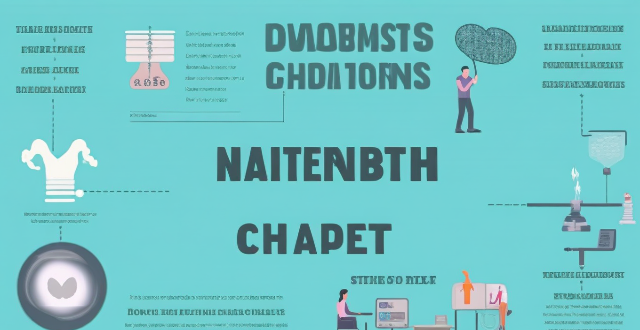
What are the economic costs and benefits of adapting to climate change ?
The text discusses the economic costs and benefits of adapting to climate change, which include direct costs such as infrastructure upgrading and water management systems, indirect costs like economic disruptions and resource reallocation, direct benefits including increased resilience and improved efficiency, and indirect benefits such as job creation and technological innovation. The conclusion states that the long-term benefits of adapting to climate change outweigh the costs, leading to more resilient economies.